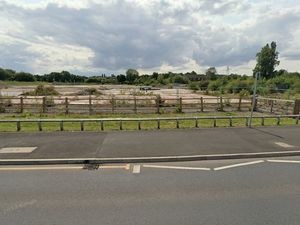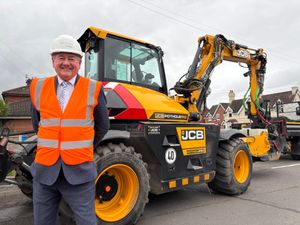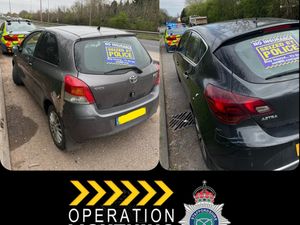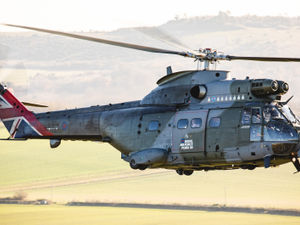Agency keeps region on the move
With 2,000 crashes and other incidents each month on the motorways and roads of the Midlands, the Highways Agency is a busy organisation.

 With 2,000 crashes and other incidents each month on the motorways and roads of the Midlands, the Highways Agency is a busy organisation.
With 2,000 crashes and other incidents each month on the motorways and roads of the Midlands, the Highways Agency is a busy organisation.
It spends £8.9 million a year keeping the region's roads clear and traffic moving. And with no sign of the various councils of the West Midlands agreeing to a form of congestion charging, drivers are going to rely on Traffic officers more and more heavily as the years go by.
More than 130 traffic officers patrol the motorways every day helped by a team of 48 workers in a regional control centre doing shifts around the clock.
A network of 630 cameras alerts the regional control centre in Quinton, Birmingham, about any accidents or cars pulling over to the hard shoulder. And special sensors installed in the road let traffic officers know about any unusual slowing of speed.
For Jim Streather and Anthony Hall, Friday is probably the busiest shift.
As drivers try their hardest to get home from work quickly the traffic builds up and the risk of an accident grows. Anthony, aged 55, has been a traffic officer ever since the job was introduced in April 2004.
He was one of the first of the specialist officers whose role has been copied up and down the country in a bid to free the police from traffic control.
"Debris in the road is one of the biggest problems we get", he said. "You'd be amazed the number of times we have to deal with ladders in the third lane which have fallen off lorries."
Within minutes of setting out on patrol in their Land Rover Discovery, Jim and Anthony have to stop to check up on a lorry driver who has broken down on the M6 near junction nine at Wednesbury.
After checking he has someone coming to help him the pair are able to get the driver monitored on the camera and leave him to it. It is not long before, just north of Stafford, they have to pull over again. This time the problem could be fatal.
A sheet of steel more than a square foot has fallen off a vehicle and is in the middle of the first lane. Jim, aged 44, has to switch on a variable message system, a display on the back of the Land Rover which tells cars to move over, so he can carefully edge into the road to get it back. Not long after they have to do a "rolling road block" to instruct cars not to pass so a colleague can pull a chain out of the road not far from junction 14 at Stafford.
Finally they have to stop the traffic once more to allow a Jaguar driver who has changed a tyre to reverse up the hard shoulder.
"We needed to give him space to get up to speed once he'd changed the tyre, but he was at the end of the hard shoulder and it wasn't safe," Jim said. "He'd also stopped just beh-ind a Honda Civic which had broken down."
While Jim and Anthony were out on their patrol, between 2 and 6pm, the Highways Agency attended 76 incidents on the M6, M42, M50, M54 and major roads from Birmingham to Shropshire and beyond Stafford.
The traffic officers are assisted by the incident support unit, which has a base at Doxey in Stafford.
Eight salt spreading lorries ensure roads do not become ice rinks.
Around 12 tonnes of salt will cover more than 100 miles of road. The Optima team also deals with oil and diesel spills. The jewel in the crown for the Highways Agency is the active traffic management system on the M42 between Coleshill and Umberslade, which opens up the hard shoulder during rush hour.
Every day the route is driven along by traffic officers to make sure it is safe before cars can pull into the left.
Ideas to expand the system to other roads are in the pipeline but are still in the early stages.
By Dan Wainwright.





